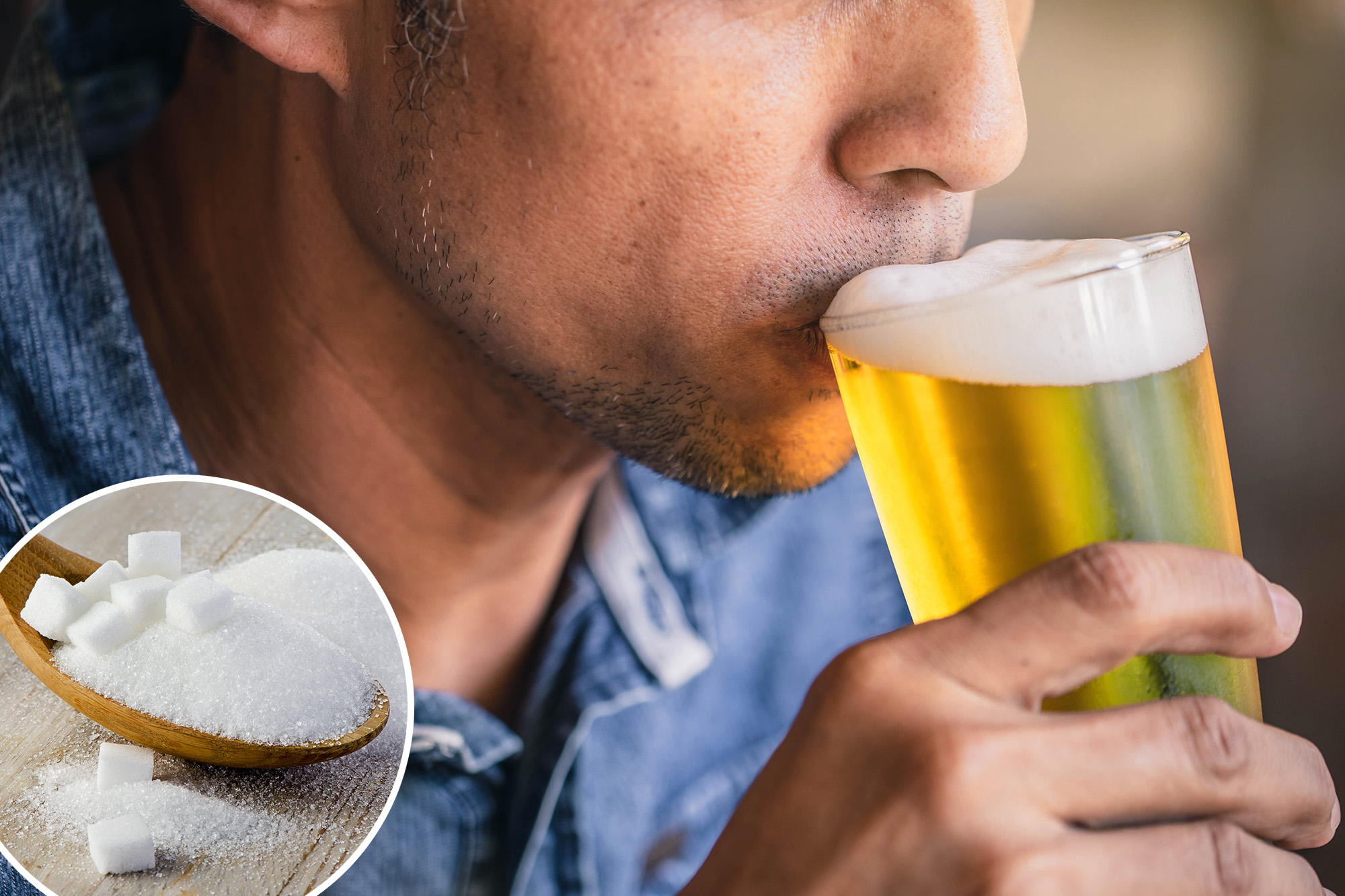Do you want a brewski without the buzz? Ensure -you should read the fine impression.
New research suggests that many low and non-alcoholic beers are not as healthy as they seem, even if you cut it again.
The warning occurs when non -alcoholic beer sales do not show slowing signs, and sales are expected to overcome Ale as the second largest beer category in the world this year, according to the IWSR industry monitoring.
In the study, scientists divided 44 young men healthy into two groups: one drank two non -alcoholic beer bottles a day, while the other was hooked with water for a period of four weeks.
Researchers conducted regular blood testing to control changes in blood sugar, cholesterol, liver function, body fat and even intestinal bacteria.
The results were not exactly refreshing.
Men who drank non -alcoholic beers saw significant spikes in sugar and insulin in the blood, along with increasing cholesterol and harmful triglycerides: blood fats linked to heart disease.
Zero -proof wheat beers and fruity mixes, such as mixed with orange or lemon soda, were the worst criminals. Pilsner -style non -alcoholic beers were slightly better.
Researchers said that “it was probably due to the caloric and sugar content” of the drinks.
This, as they warned, may drive weight gain and help feed chronic conditions such as obesity, type 2 diabetes and metabolic syndrome.
These health risks reflect what nutritional labels already show.
Non -alcoholic and regular beers are similar in calories, proteins and fats, but they have significant differences in their amounts of alcohol and carbohydrates, according to Healthline.
A standard 12 ounce beer with 5% ABV contains about 14 grams of alcohol.
Compare it with a version without a drink, which contains only 0.5% ABV or less and only about one gram of alcohol per portion.
But despite the lack of drink, products often contain a similar number of calories.
This is because non -alcoholic beers typically send more than double the carbohydrates of the usual, mainly sugar, which is usually added to improve taste after eliminating alcohol.
For example, Light Coors has 5.8 grams of carbohydrates and only 0.3 grams of sugar per portion of 12 ounces. Coors Edge, its non -alcoholic counterpart, has 8 grams of carbohydrates and 4 grams of sugar.
But not all beers without drinks create the same.
An analysis of the 2025 of Telehealth Company Hims found that the best -selling brands of Suntory, Guinness and Brewdog are classified as the most conscious options for health, with lower calories, carbohydrates and added sugars.
Health about hangers
The findings occur when non -alcoholic beer continues to increase meteoric.
The IWSR projects will grow 8% per annum until 2029, while traditional Ale will slip 2% each year during the same period.
Much of this growth is being driven by younger drinkers. Youunger’s Z and Millennials are increasingly turning their backs on the drink, with a 2023 gallup survey showing only 62% of adults under 35 say they drink at all 72% of two decades earlier.
Even those who drink are inclined to trends such as “naked zebra”, “wet drink” and “January dry”, where moderation – not abstinence – is the goal.
“I think people of my generation are more aware of their health and do not see a drink as a social obligation,” Kathleen Saloma, 24, said in The Post.
Even with additional sugar in some zero -proof beers, experts say that any effort to reduce alcohol is good for your health now and in the future.
“Drinking too much alcohol in a short period can lead to dehydration, electrolyte imbalances, damaged coordination and bad judgment,” said Amy Stephens, a sports dietitian for NYU athletics.
He said that it also increases the risk of dangerous situations, including non -safe driving of sex and drink and can cause alcohol intoxications, shutters or memory loss.
The long -term dangers are even more outalts.
“Constantly drinking excessive amounts of alcohol can cause serious health problems,” Stephens said. “This includes dependence on alcohol, liver damage, heart problems, digestive problems such as ulcers and pancreatitis and cognitive decrease.”
In January, the General Surgeon issued advice that unites even small amounts of alcohol with an increased risk for seven cancers, including chest and colorectal.
#alcoholic #beer #healthy #study #computer #sales #increase #Ale
Image Source : nypost.com
